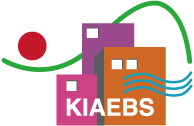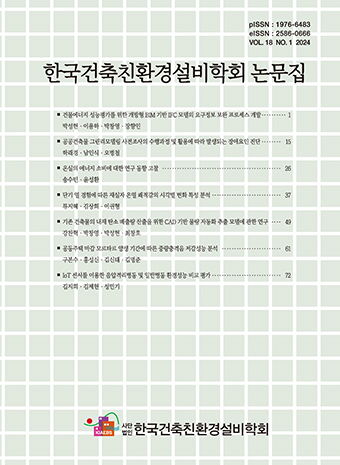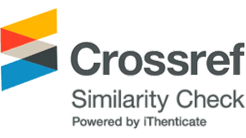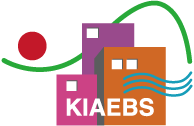Research Article
Abstract
References
Information
- Publisher :Korean Institute of Architectural Sustainable Environment and Building Systems
- Publisher(Ko) :한국건축친환경설비학회
- Journal Title :Journal of Korean Institute of Architectural Sustainable Environment and Building Systems
- Journal Title(Ko) :한국건축친환경설비학회논문집
- Volume : 15
- No :5
- Pages :419-430
- Received Date : 2021-07-06
- Revised Date : 2021-10-05
- Accepted Date : 2021-10-08
- DOI :https://doi.org/10.22696/jkiaebs.20210036




 Journal of Korean Institute of Architectural Sustainable Environment and Building Systems
Journal of Korean Institute of Architectural Sustainable Environment and Building Systems








